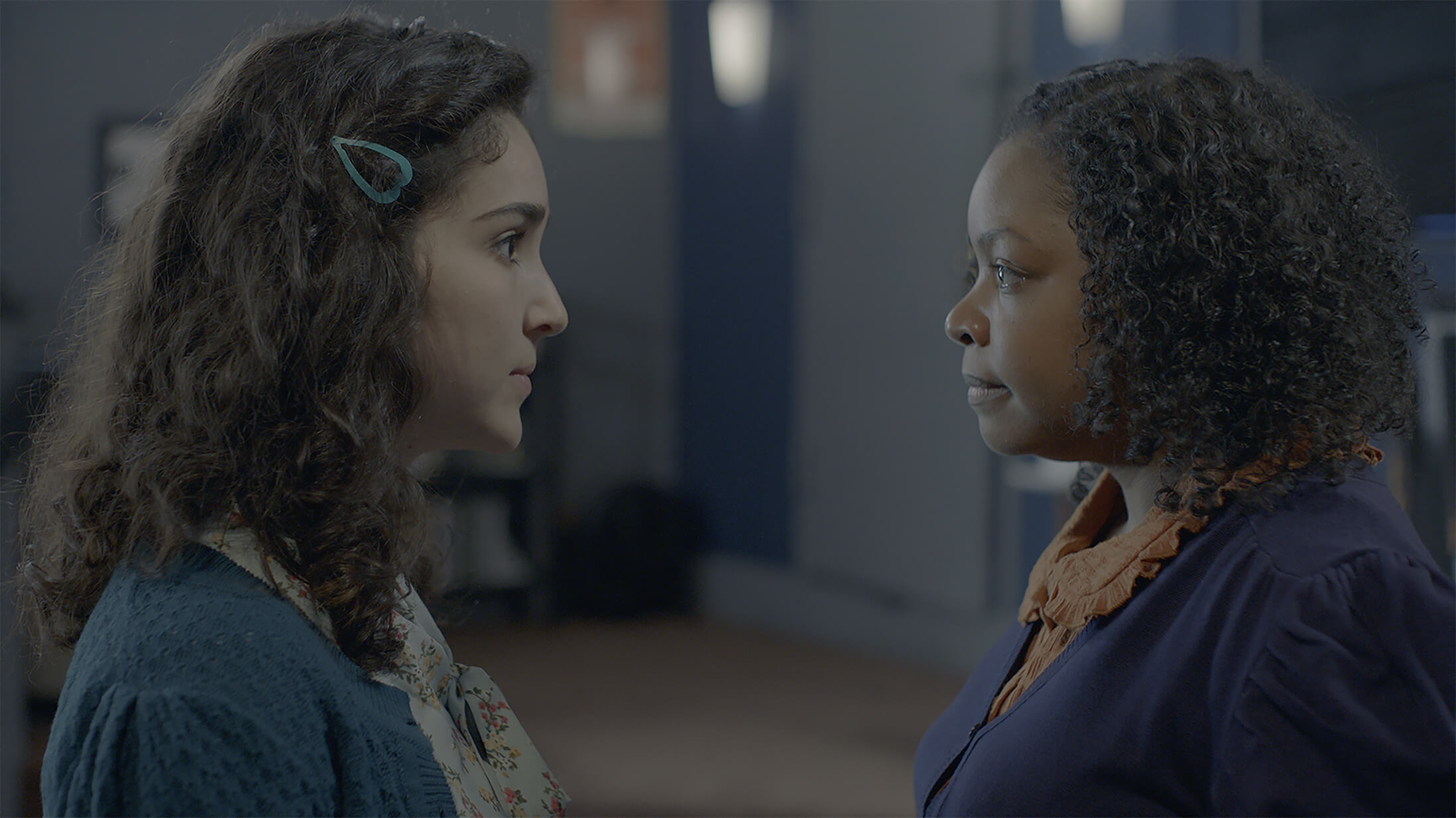What happens if a Black woman plays Anne Frank?
In a new short film, a white Jew and a Black gentile go head-to-head for the role of the Jewish teenager, opening questions of race and casting.

Graphic by Angelie Zaslavsky
Anne Frank is one of the most overthought Jewish figures out there, the subject of a wealth of articles and scholarship and memes. Her likeness and story are used as symbols of the Holocaust, the oppressed, refugees and human atrocity, and simultaneously as evidence for an abiding belief in the goodness of humanity, and the plight of both Israelis and Palestinians — the diary of a specific little girl has become entirely universalist and mutable. “Who owns Anne Frank?” asked Cynthia Ozick in 1997; today it’s an even harder question.
“Anne,” from filmmaker Adi Eshman and director Desiree Abeyta, confronts these questions head-on. Originally a short play by Eshman, the film is now premiering on the Jewish film festival circuit.
As the film begins, Lauren is preparing to audition for the role of Anne in the stage production of the diary. When she shows up, a Black woman, Mia, is exiting the audition room, and the two recognize each other.
When Lauren realizes they are both reading for Anne, she’s uncomfortable. “I just don’t know how I feel about you trying out for this play,” she tells Mia. “My grandmother was a survivor, and now as a Jewish American, I feel like it’s my responsibility to bring Anne’s story to the stage.”
“Well, when I first read her diary, she spoke to my soul — her ideas had a huge impact on me,” retorts Mia. “Anyone can portray an idea.”
Mia points out that neither actor knows what it was like to be a Jewish person in the 1940s, but, as a Black woman, she knows what it’s like to experience oppression today.
“What if I tried to portray Rosa Parks? Or was sitting here auditioning for ‘The Color Purple?’” Lauren snaps back. Anne Frank doesn’t need to be made more powerful and universal, she argues, and doing so is taking away from Jewish suffering.
The exchange not only hits on the question of Anne Frank, but also neatly encapsulates the two sides of an ongoing debate today over representation in casting. Discussions about Jewish casting — or “Jewface” — pop up in news cycle after news cycle, whether Felicity Jones as Ruth Bader Ginsburg or Helen Mirren as Golda Meir.
But the question grows far more complex when a Black woman is put in the role; while people of color have long been barred from roles otherwise seen as “universal,” an injustice modern casting is trying to rectify, white Jews have often been able to play a variety of roles. Yet is Anne a universal role?
To Eshman, who is finishing up a Master in Fine Arts in playwriting at the University of Southern California, the crux of these issues is dependent on the motivations and context — why are you making these casting choices, and what do they accomplish?
When we spoke on the phone, he recalled a production of “The Diary of Anne Frank” during a period of increased ICE detentions; the director, Stan Zimmerman, used an entirely Latinx cast, which resulted in accusations that the the show compared ICE agents and Nazis. “I think in that situation there was a very clear reason why they were casting a Latinx family as the Frank family,” said Eshman.
When “Anne” was rewritten for film, it was the summer of George Floyd’s murder. But now, as it premieres, that context has faded, and the film feels on the nose, almost overly direct; there’s little more to its 10-minute run than the back-and-forth between the women, and it can feel like the Oppression Olympics. But it’s also effective; with each volley, increasingly uncomfortable, I thought, “Well, that’s a good point — but so is that.”
There are no clean answers to these issues, and the film doesn’t attempt to posit any. “The casting director is the audience and it’s up to the audience to decide who’s best for the role,” said Eshman.

















